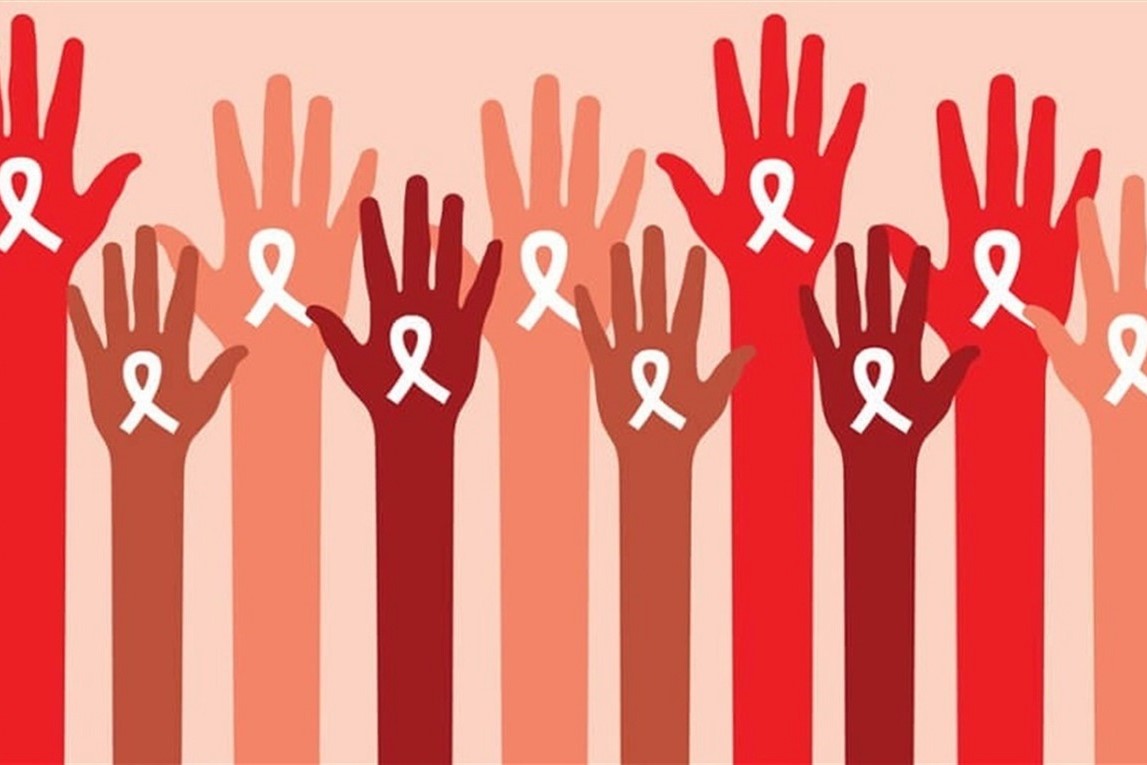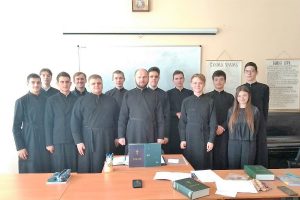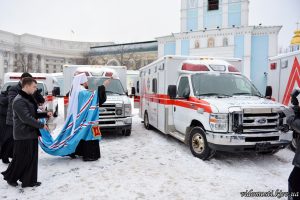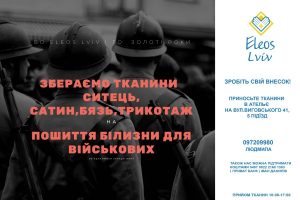English text is located below.
Спираючись на результати дослідження GAP-аналізу, були виявлені прогалин у діяльності церков та релігійних організацій у протидії ВІЛ-інфекції/СНІДу в Україні та узгоджені рекомендації до їх заповнення.
З початком повномасштабної війни на території України у лютому 2022 року значно ускладнилася ситуація, як у державному, так і в релігійному середовищі. Забезпечення епіднагляду за ВІЛ-інфекцією, надання послуг із профілактики, тестування, лікування від ВІЛ-інфекції стали неможливими насамперед у південно-східних регіонах. Багато небезпек, що пов’язані з активністю бойових дій, наслідками руйнації медичної інфраструктури, міграцією населення, призвели до неможливості здійснювати належний моніторинг ВІЛ-позитивних людей.
Роль церков та релігійних організацій у сфері протидії ВІЛ/СНІДу стала значно активнішою. Однак сьогодні досить важко порівнювати з попередніми мирними роками й говорити про розвиток діяльності у даному контексті, як і про розвиток послуг допомоги та підтримки для ВІЛ-інфікованих в умовах війни. Водночас, там де це було можливо така діяльність активно продовжувалась. Разом з тим існує ряд прогалин та недоліків у звершенні цієї праці релігійними спільнотами та організаціями, які по суті своїй залишаються такими ж, як і в минулому році:
- Відсутність у багатьох церков/релігійних організацій власних стратегій щодо боротьби з ВІЛ/СНІДом.
- Відсутність достатньої кількості фахівців для розвитку програм протидії ВІЛ-інфекції.
- Слабка роль представників церков/релігійний організацій що входять до ВРЦіРОУ у складі Координаційних рад з питань протидії ВІЛ-інфекції та туберкульозу.
- Слабка співпраця з органами місцевого самоуправління та неурядовими організаціями.
- Обмежені фінансові та технічні можливості.
- Слабка роль представників церков/релігійний організацій, а інколи навіть нерозуміння чи відмова говорити про ВІЛ особливо в сільській місцевості. Соціально-психологічні стримуючі фактори.
Даним документом затверджено Позицію Комісії Соціального служіння ВРЦіРО щодо продовження роботи у напрямку подолання стигми та дискримінації людей, які живуть з ВІЛ.
- Активну співпрацю представників різних церков та релігійних організацій з державними та громадськими та ВІЛ-сервісними організаціями, використання світового досвіду фахівців з питань ВІЛ/СНІДу;
- Подальше впровадження навчальних програм з питань ВІЛ/СНІДу для священнослужителів і студентів богословських навчальних закладів;
- Проведення інформаційних зустрічей з ВПО, парафіянами та студентами духовних вищих навчальних закладів, священнослужителями різних конфесій;
- Впровадження інформаційних зустрічей, направлених на подолання ВІЛ та стигми, у шкільних та Вищих навчальних закладах;
- Залучення до інформаційних зустрічей громади та релігійні організації з невеликих населених пунктів, сіл та міст України;
- Для більш широкого інформування та протидії стигмі і дискримінації залучити до інформування суспільства ЗМІ, продовжити виготовлення соціальних відеороликів за участі представників КГ (ключових груп) та різних конфесій;
- Розширити інформування населення щодо тестування на ВІЛ та щодо протидії стигми і дискримінації через створення соціальних відео роликів, сіті-лайтів із залученням ключових груп та представників церков і релігійних організацій.
Позиція погоджена та затверджена на черговому засіданні.
Declaration of the Social Service Committee of the Ukrainian Council of Churches and Religious Organizations (UCCRO) on overcoming stigma and discrimination, HIV infection, Hepatitis and Tuberculosis
Based on the results of the GAP analysis, gaps in the activities of churches and religious organizations in combating HIV/AIDS in Ukraine were identified and recommendations on filling fill those gaps were agreed upon.
With the beginning of a full-scale war on the territory of Ukraine in February 2022, the situation, both in the state and in the religious environment, became much more complicated. Provision of epidemiological surveillance of HIV infection, provision of prevention, testing, and treatment services for HIV infection have become impossible primarily in the southeastern regions. Many dangers associated with active hostilities, the consequences of the destruction of medical infrastructure, and population migration led to the impossibility of proper monitoring of HIV-positive people.
The role of churches and religious organizations in the area of combating HIV/AIDS has become much more active. However, today it is rather difficult to compare with previous peaceful years and talk about activity development in this context, as well as development of assistance and support services for HIV-infected people in wartime conditions. At the same time, wherever it was possible, such activity was actively continued. However, there are a number of gaps and shortcomings in the performance of this work by religious communities and organizations, which essentially remain the same as last year:
- Absence of own combating HIV/AIDS strategies in many churches/religious organizations.
- Absence of a sufficient number of specialists for the development of HIV infection prevention programs.
- Weak position of representatives of churches/religious organizations that are included in the UCCRO as part of Coordinating Councils on HIV infection and tuberculosis prevention.
- Weak cooperation with local self-government bodies and non-governmental organizations.
- Limited financial and technical capabilities.
- Weak position of representatives of churches/religious organizations, and sometimes even misunderstanding or refusal to talk about HIV, especially in rural areas.
- Socio-psychological restraining factors.
The following document approves the Position of the Social Service Committee of the Ukrainian Council of Churches and Religious Organizations (UCCRO) on the continuation of work in the direction of overcoming stigma and discrimination of people living with HIV.
- Active cooperation of representatives of various churches and religious organizations with state, non-governmental and HIV service organizations, use of world experience of HIV/AIDS specialists;
- Further implementation of educational programs on HIV/AIDS for priests and students of theological educational institutions;
- Conducting informational meetings with IDPs, parishioners and students of theological higher educational institutions, clergymen of various denominations;
- Implementation of informational meetings aimed at overcoming HIV and stigma in schools and higher educational institutions;
- Involvement of the community and religious organizations from small settlements, villages and cities of Ukraine in informational meetings;
- To involve the mass media in informing society for wider informing and overcoming stigma and discrimination, to continue production of social videos with the participation of representatives of KG (key groups) and various church denominations;
- To expand public awareness about HIV testing and overcoming stigma and discrimination through the creation of social videos, city lights with the involvement of key groups and representatives of churches and religious organizations.
The position was agreed and approved at the regular meeting of the Committee.






